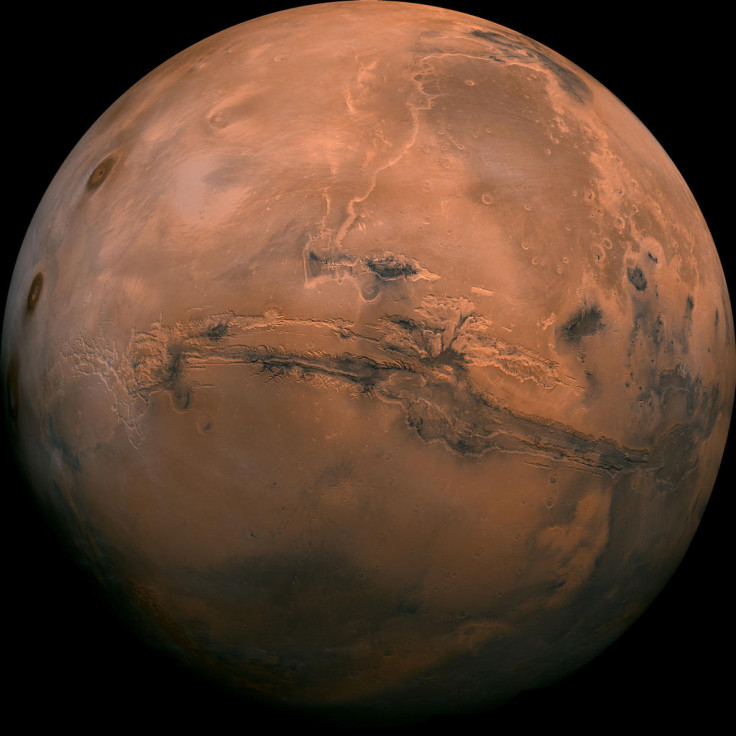Mars used to have an Earth-like 'warm and wet' climate 4 billion years ago, scientists discover
Scientists discovered over 17,000 kms of river channels in Mars' Arabia Terra by analysing Nasa's high resolution images.

Scientists have found new evidence indicating that Mars may once have had an Earth-like 'warm and wet' climate, around four billion years ago. Around 17,000 kms of fossilised river channels were discovered by scientists on Mars's northern plain of Arabia Terra, supporting the theory that the currently dry and cold Red Planet once had climactic conditions that could have potentially supported life.
The study, published in the journal Geology, involved scientists examining high resolution images obtained by Nasa's Mars Reconnaissance Orbiter (MRO) spacecraft. The research paper's lead author Joel Davis told IBTimes UK: "Our study, as well as data from Nasa's Curiosity Rover in Gale Crater, point to an early Mars with abundant rivers and lakes – ideal environments to support life and also importantly to concentrate evidence of past life (what we call biomarkers) into the rocks and sediment, where we can perhaps find them today.
"We think that the inverted channels in our study, in particular, because they were buried and protected from the Martian environment for several billion years, could have preserved any biomarkers and protected them from solar radiation. In fact, one of the inverted channels – Aram Dorsum – is a candidate landing site for the ExoMars Rover making it an ideal environment to study."
"Obviously, it's difficult to speculate about the existence of life on early Mars without actually landing on the surface and analysing samples collected there – this is something that upcoming missions, like the European Space Agency's life-hunting ExoMars rover, are hoping to do, by drilling into the surface. That said, from what we know about how life emerged on the Earth, Earth-like 'warm and wet' climate conditions on early Mars are more likely to have been favourable to emerging life than a frozen planet."
According to Davis, the networks of inverted river channels uncovered were found to be "about 30m high and up to 1-2km wide", which led the researchers to speculate that the networks were "probably the remains of giant rivers" which "were active 3.9-3.7 billion years ago".
Scientists also noted that the inverted river channels had similarities to those found elsewhere on Mars and Earth and are believed to have been the remnants of sand and gravel deposited by an actively flowing river in ancient Mars. According to Davis, despite the similarities between the current climactic conditions on Earth and the four billion year-old conditions on Mars, it is unlikely that Earth is heading for a similar fate in the distant future.
"While Earth and Mars are similar in many ways – they're also very different. It was probably the loss of Mars's magnetic field early on in its history, perhaps combined with Mars being a smaller planet with less gravity, which led to its atmosphere to start being removed. And that caused its climate to shift from a 'warm and wet' environment to the cold, dry world we see today. Fortunately, on Earth, we still have our magnetic field, so we're not likely to see the dramatic shifts in climate that Mars underwent," Davis explained.
© Copyright IBTimes 2024. All rights reserved.






